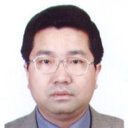Cancer Epidemiology 2019-Jun
Body mass index and the risk of head and neck cancer in the Chinese population.
Само регистрирани потребители могат да превеждат статии
Вход / Регистрация
Линкът е запазен в клипборда
Ключови думи
Резюме
RESULTS
Compared to normal BMI at interview (18.5-<25 kg/m2), being underweight (BMI < 18.5 kg/m2) was associated with a higher HNC risk (OR = 2.71, 95% CI 1.40-5.26). Additionally, obesity (BMI > 30 kg/m2) was associated with a lower HNC risk (OR = 0.30, 95% CI 0.16-0.57). Being underweight at age 20 was also associated with an increased risk of HNC. However, being underweight at 5 years or 2 years before interview was not associated with a higher risk of HNC.

